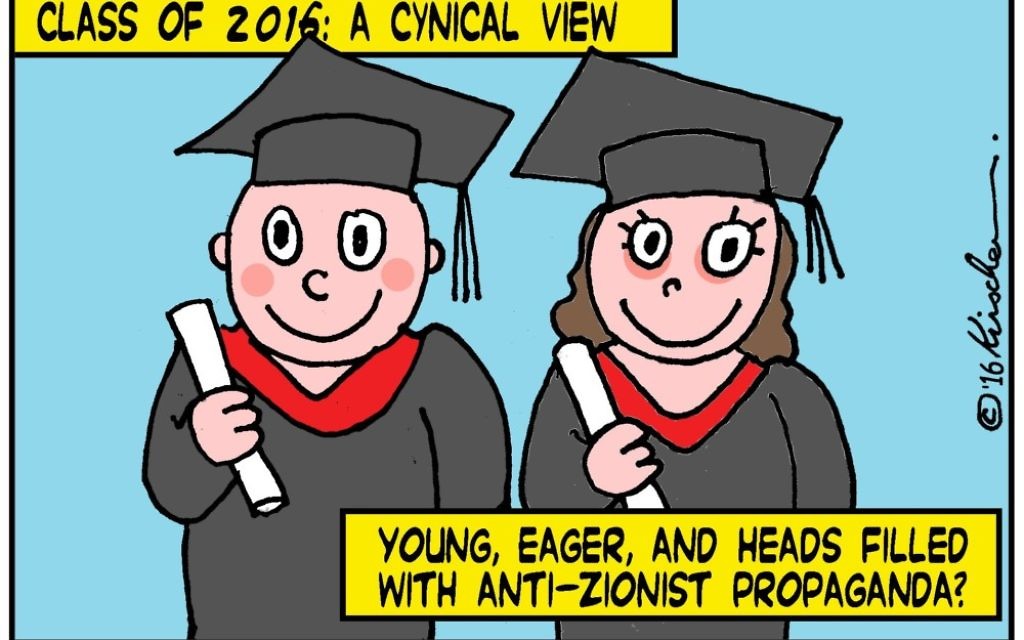A College Blessing and the Challenges Ahead
One of the most popular services in our congregation is the annual August blessing of young men and women soon to start college.
Tissues are plentiful as many in attendance have known them since childhood.
Each student receives a travel set of Shabbat candleholders, an encouragement that their Jewish identity can help guide them in the next chapter of their lives.
Get The AJT Newsletter by email and never miss our top stories Free Sign Up
Our rabbi tells the young people that they need not feel alone when unfamiliar surroundings and new routines contribute to fear or loneliness. This congregation is your home. We are here for you.
The parents hope that they’ve given their offspring both roots and wings, an awareness of who they are and where they come from, and an eagerness to seize the opportunities that lie ahead.
Freshman year is full of challenges: roommates and dormitory living; exposure to cultures, beliefs and behaviors previously unexperienced; and, of course, the professors, classes and work that come with the privilege of higher education.
Add to this mix combustible tensions between supporters of Israel and those backing the Palestinian cause. “Many universities are grappling with how to balance students’ right to protest with Jewish students’ fears that their culture is under attack,” The New York Times reported Aug. 3.
Jewish students with an affinity for Israel may feel ill-equipped or unwilling to argue with activists whose rhetoric can blur lines across which criticism of Israeli government policies also questions Israel’s right to exist and, on occasion, veers into what its recipients consider to be anti-Semitic abuse.
Then there are incidents ranging from swastikas and anti-Jewish graffiti (such as vandalism at a Jewish fraternity house at Emory University in October 2014) to disruption of Israel-related events sponsored by Jewish students (as at the University of Georgia in February this year).
Students for Justice in Palestine considers such disruptions a legitimate form of protest. The first SJP chapter was founded in 1993 at the University of California, Berkeley. Today there may be as many as 200 chapters, organized under the banner of National Students for Justice in Palestine.
“S.J.P. members insist they are anti-Israel, not anti-Semitic — a debatable distinction to those who cannot separate the state of Israel from their Jewish identity,” the Times reported. On a number of campuses, SJP’s ranks include Jewish students who have achieved some measure of that separation.
When American Jewish Committee asked in August 2015, 53.8 percent of 1,030 American Jews surveyed said anti-Semitism on college campuses is “somewhat of a problem,” 20.4 percent called it a serious problem, and 23.7 percent said it was not a problem.
The Anti-Defamation League reported 90 anti-Semitic incidents on 60 campuses in 2015. For the same year, the AMCHA Initiative, a nonprofit that monitors campus anti-Semitism, cited 300 incidents on 109 campuses in 28 states. AMCHA’s website links to reports from a few hundred colleges and universities, including several in Georgia, and includes a page highlighting comments by Jewish students.
Those campuses are a fraction of the more than 4,700 two-year and four-year institutions in the United States. Nonetheless, incidents of campus anti-Semitism and protests against Israel, well publicized online, alarm parents and have sparked debate in the Jewish communal world about how to respond.
“The sheer number of incidents are increasing at an alarming rate, particularly those involving the systematic and often violent suppression of Jewish students’ freedom of speech and assembly. And the link between antisemitic activity and anti-Zionism has become abundantly clear and is openly acknowledged with ever greater frequency by the perpetrators of these activities,” AMCHA warned in a report issued in late July about incidents during the first half of 2016 at schools with large Jewish student populations.
So, as our rabbi blesses these young men and women, you hope that as they enter the maelstrom that is freshman year of college they grasp their roots and spread their wings and remember that they are not alone. There is a congregation standing behind them.







comments